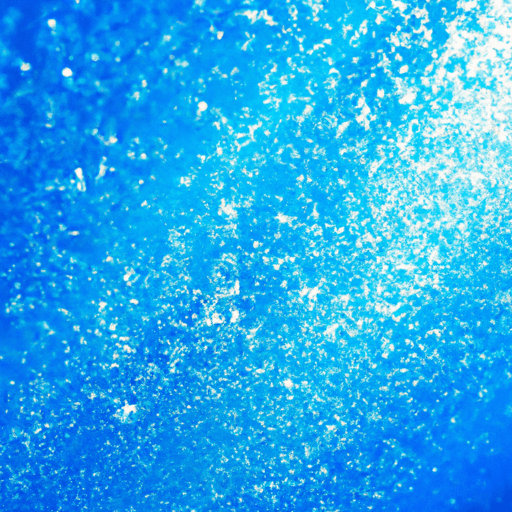Unlocking the Fizz: Exploring the Versatile World of Seltzer Water
Seltzer water, a carbonated beverage that has been captivating taste buds for centuries, has become a delightful companion in the realm of cooking. This effervescent elixir, essentially water infused with carbon dioxide, adds a refreshing and bubbly twist to countless culinary creations. In this article, we will dive into the world of seltzer water, exploring its unique taste, popular uses in cooking, its nutritional value, and some intriguing history and facts that make it such an intriguing ingredient.
Taste That Tickles
The first encounter with seltzer water might evoke a nostalgic memory of tiny, effervescent bubbles dancing on your tongue. Its zesty taste, crisp and clean, instantly refreshes the palate. Seltzer water is more neutral in flavor compared to other carbonated counterparts like tonic water or club soda, which allows it to seamlessly merge with the flavors of various ingredients.
Culinary Companionship
Light and Fluffy Batters
When it comes to cooking, seltzer water’s carbonation is a secret weapon for creating light and airy batters. The carbon dioxide bubbles aerate the mixture, resulting in a delicate texture. Whether you’re making pancakes or tempura batter, substituting some of the liquid with seltzer water can make your dishes incredibly light and crispy.
Perfecting the Art of Baking
Seltzer water can also work wonders in the world of baking. By adding a splash of seltzer water to your cake or muffin batter, you can achieve a lighter, fluffier end result. The carbonation helps the dough rise, resulting in a tender and moist crumb texture.
Effervescent Beverages
Take your creativity to the next level by infusing seltzer water with fruits, herbs, or even edible flowers. This simple technique will elevate your homemade sodas, mocktails, and cocktails to new heights. The effervescence of seltzer water helps to release and carry the flavors of the added ingredients, creating a refreshing and delightful beverage.
Nutritional Refreshment
Seltzer water is known for its calorie-free and sugar-free properties. It offers a guilt-free hydration option for those looking to cut down on their calorie or sugar intake. It is also free from artificial additives, making it a healthy alternative to sugar-laden carbonated drinks. Seltzer water allows you to enjoy the delightful fizz without compromising your health-conscious choices.
A Sparkling Past
The history of seltzer water dates back to the eighteenth century, where it was first discovered in natural springs in Germany and the town of Selters, hence the name. The effervescence that occurs naturally in these springs became the inspiration to artificially carbonate water, leading to the invention of seltzer bottles and the birth of the soda water industry.
Fun Facts about Seltzer Water
- Seltzer water is often confused with club soda and sparkling water, but each has its distinct characteristics. Club soda contains added minerals and a touch of salt, while sparkling water is naturally carbonated or infused with carbonation.
- In the early 20th century, seltzer bottles were delivered to households, providing a fizzy delight right at people’s doorsteps. The deliverymen were known as “seltzer men,” and their trade continued until the advent of modern soda dispensers.
- Seltzer water became particularly popular during the Prohibition era in the United States when it was often used as a mixer in covert speakeasies, helping to mask the flavors of homemade spirits.
So, next time you reach for that crisp bottle of seltzer water, consider its incredible potential in the realm of cooking. With its refreshing taste, the ability to create lighter batters, and a fascinating history, seltzer water is undoubtedly an intriguing ingredient worthy of exploration in your culinary adventures. Cheers to unlocking the fantastic fizz that seltzer water brings to the table!
Origin of Seltzer Water:
Seltzer water, also known as carbonated water or soda water, originated in Germany in the late 18th century. It was first produced by Joseph Priestley, an English chemist, who found a method of infusing water with carbon dioxide gas.
Common Uses:
Seltzer water is widely used as a mixer in cocktails such as the Tom Collins and a refreshing beverage on its own. It can be enjoyed plain or flavored with various fruits, herbs, or extracts. Additionally, it is popular as a base for homemade sodas and as a mixer for mocktails.
Nutritional Benefits:
Seltzer water is comprised of water and carbon dioxide gas and contains no calories, fat, sugar, or carbohydrates. It is a non-alcoholic, low-sodium alternative to carbonated beverages that may contain added sugars or artificial sweeteners.
Unique Properties and Historical Significance:
Seltzer water is characterized by its effervescence, which is achieved through the addition of carbon dioxide gas. It is often seen as a healthier alternative to sugary soft drinks due to its lack of sweeteners and potential hydrating properties. Historically, early seltzer bottles were made of glass and featured a metal tube for dispensing the water. These vintage seltzer bottles have become collector’s items.
So, in summary, seltzer water originated in Germany in the 18th century, is commonly used as a mixer in cocktails and for homemade sodas, offers no calories or sugar, and is known for its effervescence.




Use the share button below if you liked it.
It makes me smile, when I see it.